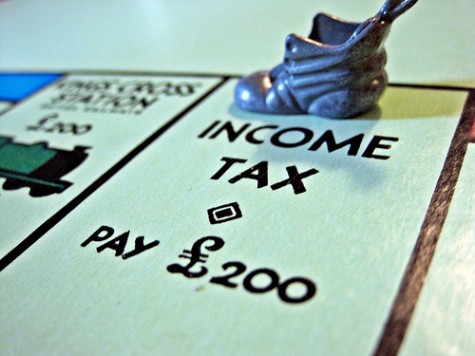Leeds Beckett University - City Campus,
Woodhouse Lane,
LS1 3HE
Expert Opinion
Budget 2014: What can we expect?
George Osborne will deliver his fourth Budget speech tomorrow. Professor Alex Nunn and Dr Jamie Morgan comment on their expectations for the announcements.
When George Osborne delivered his first ‘emergency’ budget in 2010 he probably anticipated that by now, and with just under 14 months to go to a General Election, he would be in a position to give some traditional pre-election giveaways in the form of tax cuts.
Limited room for manoeuvre
When he presents his budget tomorrow, Osborne is likely to make much of the recent return to economic growth as evidence that his ‘austerity politics’ is working and we can expect some high profile announcements on housing, childcare and a cap on welfare. We may also see superficially eye catching plans to further increase the personal tax allowance and to increase the National Minimum Wage.
However, careful scrutiny of both the rhetoric and policy announcements will be needed. Despite the likely positive message:
Osborne’s options are limited by the time it has taken for the UK economy to return to growth and the very uncertain state of that growth. The jury is very much out on whether austerity has worked for the UK economy.

Image used under creative commons license, courtesy of CJ Isherwood.
An opportunity to re-balance austerity politics?
The big theme of the Coalition government has been deficit reduction. So far the Coalition has chosen to reduce the deficit primarily through public spending cuts rather than increases in taxation. Indeed, in the Chancellor has reduced the top rate of income tax.
Recent commentary from the Institute for Fiscal Studies shows that by the end of the 2013-14 tax year, we will be about half of the way through the planned public spending cuts that are scheduled to run until 2018-19.
A large part of the future spending cuts, especially to public services other than welfare, are to come after the election. Given the reported state of NHS, social care and education budgets further cuts after the election could be risky business for the new government. High profile collapses in public services are hard for governments to cope with. It is therefore no surprise that a range of commentators question whether any government could actually deliver them.
So is now the time to change tack on fiscal policy and re-balance spending cuts with tax increases? We think so. Now is the time to re-balance spending cuts with increases in progressive taxation. The Chancellor has said that ‘we are all in it together’. Unless he thinks again on planned future spending cuts and offsets this with increasing the responsibility for balancing the budget among the very wealthy, inequality will rise and his words will ring emptier than ever.

Image used under creative commons license, courtesy of Images Money.
‘All the glitters is not gold’ - The need for careful scrutiny of Osborne’s announcements
In terms of announcements, Osborne is likely to make a lot of noise about alleviating child care costs for working families and potentially increasing the personal tax allowance and implementing the Low Pay Commission’s recommended increase in the National Minimum Wage. Superficially such announcements would look like they were attending to concerns about living standards, especially among low paid workers. However, the precise details of such policies will need careful scrutiny:
When George Osborne delivered his first ‘emergency’ budget in 2010 he probably anticipated that by now, and with just under 14 months to go to a General Election, he would be in a position to give some traditional pre-election giveaways in the form of tax cuts.
Limited room for manoeuvre
When he presents his budget tomorrow, Osborne is likely to make much of the recent return to economic growth as evidence that his ‘austerity politics’ is working and we can expect some high profile announcements on housing, childcare and a cap on welfare. We may also see superficially eye catching plans to further increase the personal tax allowance and to increase the National Minimum Wage.
However, careful scrutiny of both the rhetoric and policy announcements will be needed. Despite the likely positive message:
- Osborne’s room for pre-election giveaways is severely limited because growth has been so disappointing in the period since 2010.
- State borrowing will be almost double this year what Osborne hoped in 2010. Public debt will be approximately 75% of GDP this year.
- Economists continue to argue about whether current measured growth is real structural growth or just utilising spare capacity and whether austerity has helped or hindered in this regard.
Osborne’s options are limited by the time it has taken for the UK economy to return to growth and the very uncertain state of that growth. The jury is very much out on whether austerity has worked for the UK economy.

Image used under creative commons license, courtesy of CJ Isherwood.
An opportunity to re-balance austerity politics?
The big theme of the Coalition government has been deficit reduction. So far the Coalition has chosen to reduce the deficit primarily through public spending cuts rather than increases in taxation. Indeed, in the Chancellor has reduced the top rate of income tax.
Recent commentary from the Institute for Fiscal Studies shows that by the end of the 2013-14 tax year, we will be about half of the way through the planned public spending cuts that are scheduled to run until 2018-19.
A large part of the future spending cuts, especially to public services other than welfare, are to come after the election. Given the reported state of NHS, social care and education budgets further cuts after the election could be risky business for the new government. High profile collapses in public services are hard for governments to cope with. It is therefore no surprise that a range of commentators question whether any government could actually deliver them.
So is now the time to change tack on fiscal policy and re-balance spending cuts with tax increases? We think so. Now is the time to re-balance spending cuts with increases in progressive taxation. The Chancellor has said that ‘we are all in it together’. Unless he thinks again on planned future spending cuts and offsets this with increasing the responsibility for balancing the budget among the very wealthy, inequality will rise and his words will ring emptier than ever.

Image used under creative commons license, courtesy of Images Money.
‘All the glitters is not gold’ - The need for careful scrutiny of Osborne’s announcements
In terms of announcements, Osborne is likely to make a lot of noise about alleviating child care costs for working families and potentially increasing the personal tax allowance and implementing the Low Pay Commission’s recommended increase in the National Minimum Wage. Superficially such announcements would look like they were attending to concerns about living standards, especially among low paid workers. However, the precise details of such policies will need careful scrutiny:
- Simply raising the tax allowance looks like it helps the poorest most, but actually its distributional effects are felt further up the income distribution. To help the poorest households it would be much more effective to reform National Insurance contributions.
- Depending on how it is structured increased support for households with childcare costs might also end up benefiting the relatively better off more than the poorest households because they tend to be less likely to have two full-time earners in the first place.



